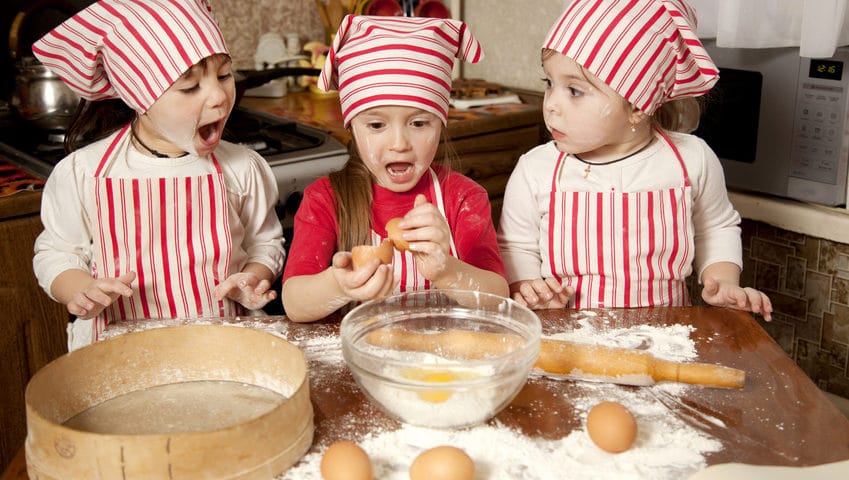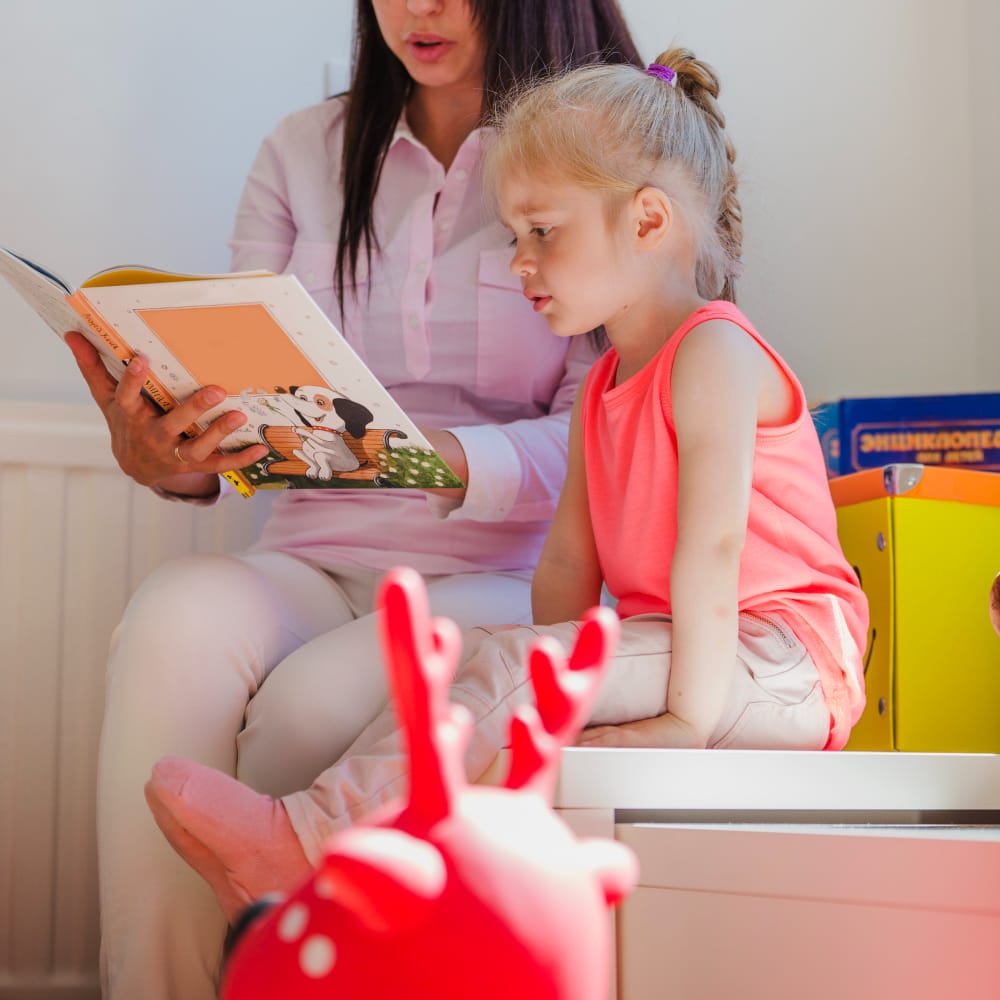Children use early math skills in everything they do. We call these developing maths skills: numeracy – the ability to understand and work with numbers. Even simple routines like tidying up, brushing teeth and going shopping can be used as opportunities to teach your child about math.

Math is Everywhere!
Mathematics helps children to makes sense of the world around them. The early years are all about exploring patterns and shapes, comparing sizes and counting objects. And almost any object can be turned into a maths learning tool. Think about the way your toddler uses an equal amount of blocks while building to make sure the “walls of his castle” are stable. Or the way children will naturally start counting pavement blocks or steps while walking.
Be sure that you use the “language of maths” in your home often. For instance, you can say things like “Bring me your hat, plus your scarf and socks”. Or: “Let’s cut this apple in half so we each get an equal portion“.
Using Play Materials to teach Maths
Fundamental maths skills like adding, subtracting, pattern and shape can be taught using everyday play materials such as:
- Blocks, Lego and Duplo
- Peg Boards
- Number Tracing Worksheets (We really like these by The Doting Aunt)
- Tangrams
- Playdough
- Books, Rhymes and songs
- Puzzles
- Natural materials like stones, acorns, leaves, twigs or shells
How parents can help their child develop maths skills
Remember that you play an important role in influencing your child’s interests. Be a role model for your child by providing him or her with lots of opportunities to learn and develop new skills.
 And be careful of putting yourself down in front of your child. So often I hear parents say things like: “I’m terrible at maths!” only to have their child imitate them shortly after.
And be careful of putting yourself down in front of your child. So often I hear parents say things like: “I’m terrible at maths!” only to have their child imitate them shortly after. Enhance and extend your child’s play by creating opportunities for them to:
- Use number concepts and skills to explore the world around them.
- Create and discover.
- Problem solve and think things through. Don’t be too quick to provide your child with answers. Allowing them to figure it out for themselves helps to develop confidence in their own abilities.
- Solve practical, everyday problems like “how should we divide these cupcakes so everyone gets their fair share?”
Learning Maths: Examples from everyday life
Classification
Classification is all about grouping or sorting objects by their common characteristics. This is a great way to get those little hands busy with chores such as tidying up toys and packing away laundry. Ask your child to pack all of her farm animal toys in one box and her dinosaur toys in another. Or get him to pack your fresh laundry into separate piles of socks, shirts and towels – with some help of course! Sorting by colour is another fun way to learn about maths while teaching about colours at the same time.
Pattern and Shape
Kids love identifying or creating shapes and patterns. Use blocks to build castles, barns and garages. Or play dough to mold ponds, mountains and roads. Bake a circular pizza together and then cut it into triangle shaped slices. Have your child go around the house with a basket and instruct them to fill it with objects that are square / round / rectangular, etc.
Basic Numeracy is the first step to learning Maths skills
Does you child know number words? How to count? Is he able recognize the numerals 1 to 10? What if you switch up their order – can he recognise them now? Teaching basic numeracy skills is tons of fun. Mix things up by counting backwards. Play cards, dominoes or games that use dice. Sing songs and compose rhymes about numbers. For some classics check out: Ten in the bed, 3 Little monkeys jumping on the bed and 5 Little speckled frogs sat on a speckled log.
Maths skills and Measurement
Children learn about measurement by comparing and ordering objects. It helps them to understand concepts like time, weight and length. Baking together is an ideal way to teach measurement. Does your child understand that an hour is longer than a minute? And does he know what time bedtime is? Make it fun by measuring the length of a section of wall by using your hands. How many of Daddy’s hands fit into the section? And how many of my little baby brother’s?
Learning maths skills in the early years is very important, because it provides the foundation on which your child will build vital life skills. When children have developed these skills they will be able to understand shapes, measure objects, solve problems and develop better spatial awareness.
For more information about developing numeracy skills in your child, contact Anel Annandale at 021 423 0739 or via email at anel@childpsych.co.za.




